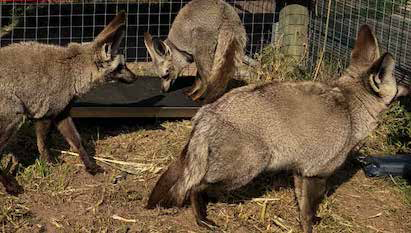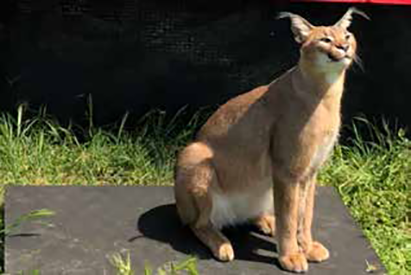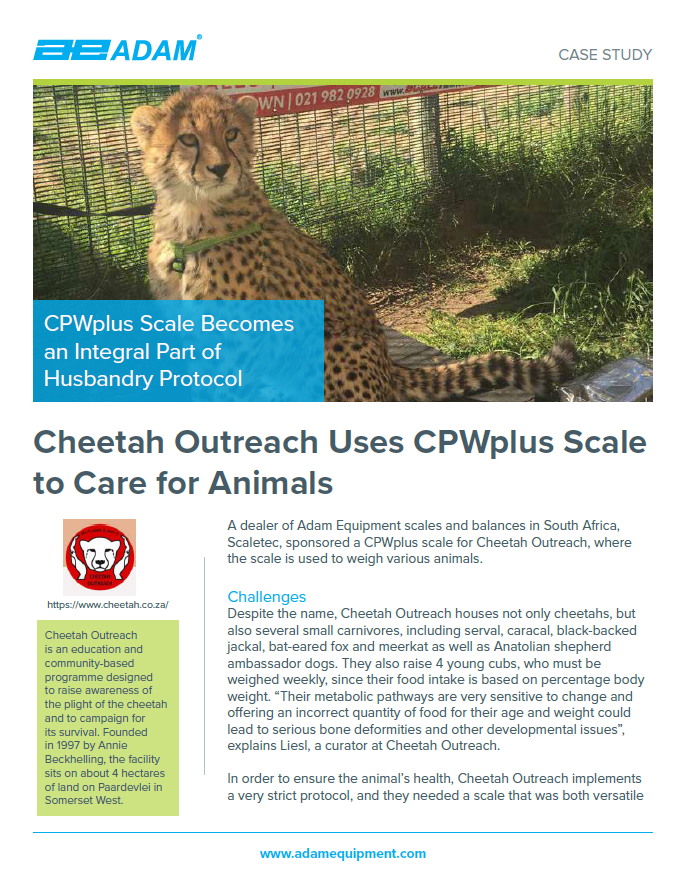Download our full PDF by clicking the image above
Challenges

Bat-eared foxes on CPWPlus
Despite the name, Cheetah Outreach houses not only cheetahs, but also several small carnivores, including serval, caracal, black-backed jackal, bat-eared fox and meerkat as well as Anatolian shepherd ambassador dogs. They also raise 4 young cubs, who must be weighed weekly, since their food intake is based on percentage body weight. “Their metabolic pathways are very sensitive to change and offering an incorrect quantity of food for their age and weight could lead to serious bone deformities and other developmental issues”, explains Liesl, a curator at Cheetah Outreach. In order to ensure the animal’s health, Cheetah Outreach implements a very strict protocol, and they needed a scale that was both versatile and precise. Liesl adds: “All the animals at Cheetah Outreach, from the smallest meerkat to the largest cheetah are weighed weekly or monthly, depending on the need. These measurements are recorded in our husbandry manuals and used to adjust food intake and caloric offerings to all individual animals.”
How the CPWplus Helped

Caracal on CPWPlus
Liesl tells us that “the scale has become an integral part of our husbandry protocol. Maintaining an optimal body weight and condition in exotic animals is paramount to their health and welfare in captivity”. The CPWplus has a generous platform size and a high capacity, which is useful since, as Liesl tells us: “an adult cheetah of 60+ kilograms needs a considerable space to fit on completely”. The handles and wheels make the scale easy to transport since it does not have to be carried. The extension cord allows the scale to operate in the animal’s enclosure without the handler being present: “some animals are more likely to step on the scale if the handler is on the other side of a gate or fence. This feature makes this possible”. The enclosures try to mimic the animal’s natural environment, and as such it can be difficult to find an even surface, so the handlers often use the adjustable wheel brackets to steady the scale.
“Honestly, I cannot even imagine how we ever used to get along without this scale.”
- Liesl, curator at Cheetah Outreach
Education, Conservation and Protection
Cheetah Outreach Trust is a non-profit conservation organisation dedicated to the protection of the free-ranging cheetah and the stability of cheetahs held in captivity as an assurance population. The work of the Cheetah Outreach Trust is focused in four key areas: environmental education, reduction of wildlifehuman conflict through applied and effective in situ (field-based) strategies, advocacy for the elimination of illegal trade using the South African DNA studbook (hosted by Cheetah Outreach) as a monitoring tool for legitimacy of animals traded and research. For more information on Cheetah Outreach, visit www.cheetah.co.za.
Cheetah Outreach is an education and community-based programme designed to raise awareness of the plight of the cheetah and to campaign for its survival. Founded in 1997 by Annie Beckhelling, the facility sits on about 4 hectares of land on Paardevlei in Somerset West.


